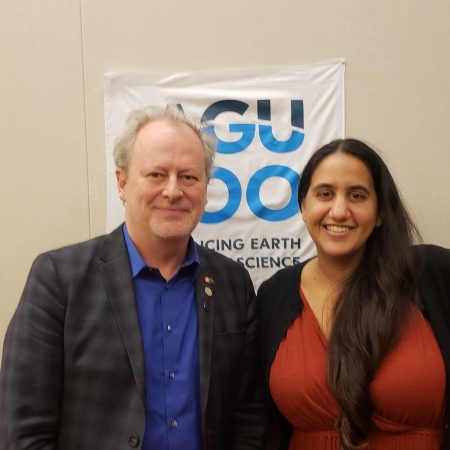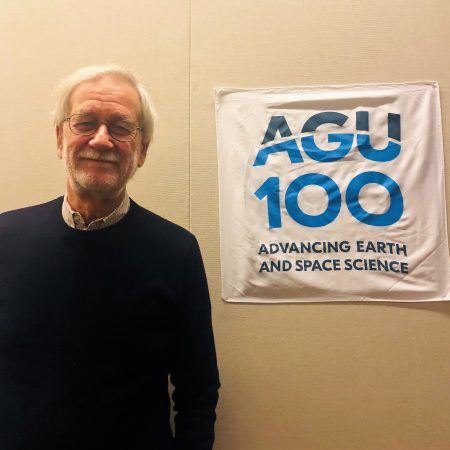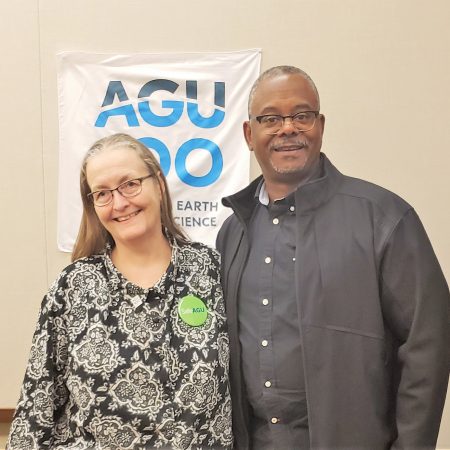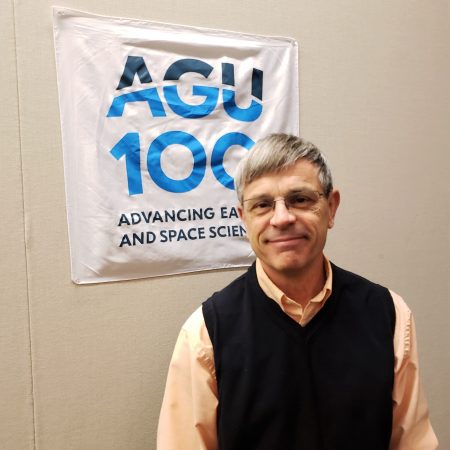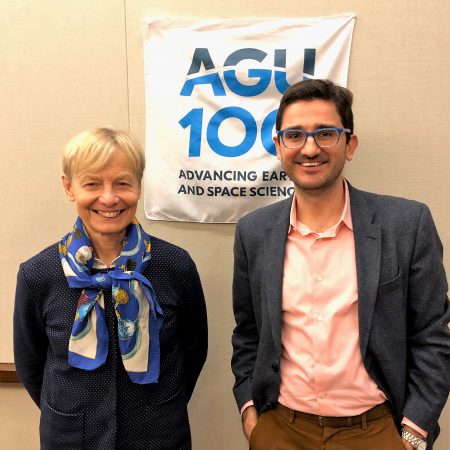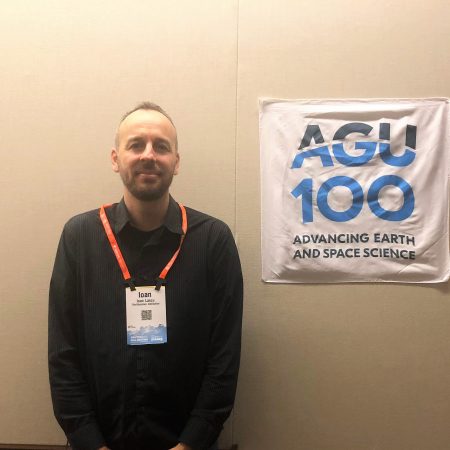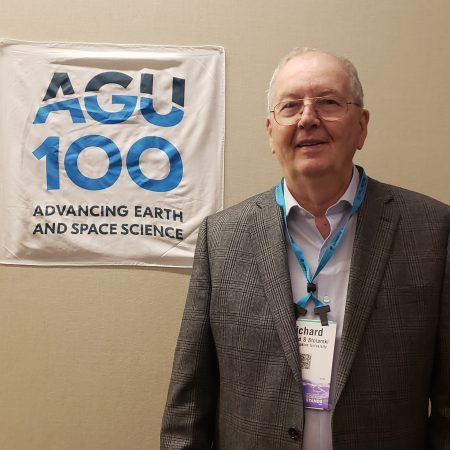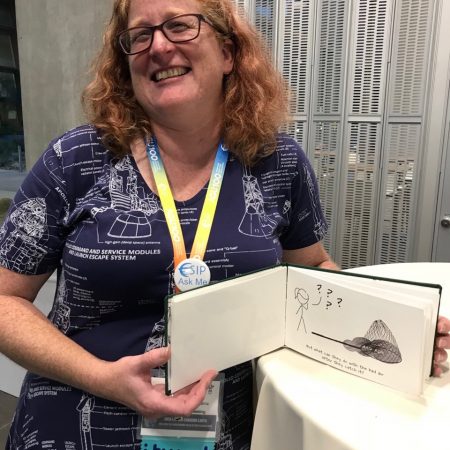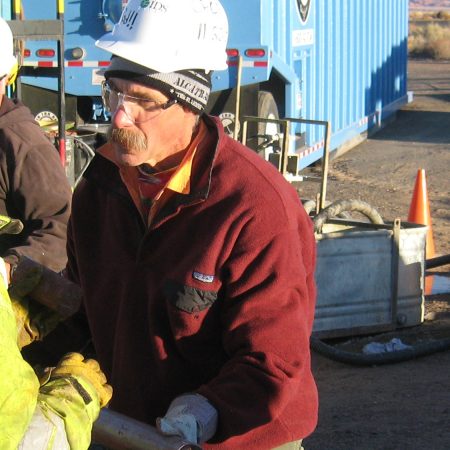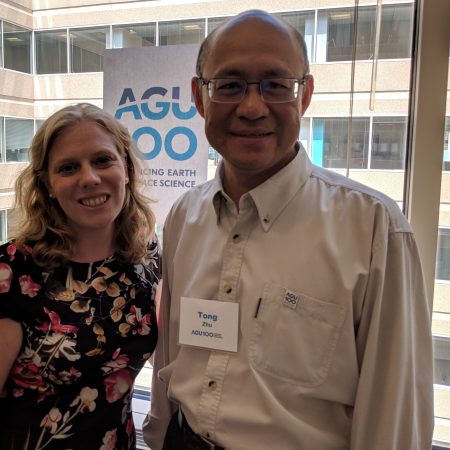Refine
Date Range Clear
Recorded by Clear
Keywords Clear
Partnerships Clear
- No matching terms.
Organizations Clear
- American Geophysical Union 15
- National Aeronautics and Space Administration 3
- European Geophysical Union 1
- University of Bristol 1
Places Clear
- AGU 2018 Fall Meeting 12
- Washington DC 12
- American Geophysical Union 1
- FAIR DATA 1
- Leadership Development Commitee 1
Languages Clear
- No matching terms.
Initiatives Clear
- No matching terms.
Jonathan Bamber has always loved to climb mountains. It’s why, when he wrote an essay about ice crystal formation in clouds as an 18-year-old undergrad, he found his calling studying glaciers and the natural environment. He’s traveled the world as...
Dr. Claire Parkinson, senior scientist at NASA's Goddard Space Flight Center since 1978, discusses using satellite data to monitor sea ice in the Arctic and Antarctic and serving as project scientist for the NASA satellite Aqua, which makes measurements of...
Steven Clarke, NASA's Deputy Associate Administrator for Exploration, discusses his life in science and engineering. Currently tasked with bridging NASA's efforts on human and robotic missions to coordinate scientific requirements for going to the Moon and Mars, he has seen...
John Bolten doesn’t need to get his hands dirty to learn about crop yields. Using satellite images, the Associate Program Manager of Water Resources for the NASA Applied Sciences Program has worked with the U.S. Department of Agriculture to directly...
Gail Skofronick-Jackson, Program Manager at NASA Headquarters, Science Mission Directorate, knows more about snow than most Tallahassee, Fla. residents. In fact, it may be safe to say that the program manager at NASA Headquarters knows more about snow than most...
In the mid-2000s, a small group of leaders at AGU, including Peter Fox, Rensselaer Polytechnic Institute, saw an opportunity to shape or reshape how geoscientists work together under a new cross-cutting discipline. As a result, “Earth and space Science Informatics”...
Not every scientist can boast about putting an end to Biblical-level plagues. But NASA Senior Earth Scientist Compton Tucker helped to end periodic locust swarms which pop up in dry parts of the world and go onto wreak havoc on...
With great data comes great responsibility. Ruth Duerr, a self-described scientific “generalist,” and Steve Diggs, an ocean data specialist, take on years of efforts by scientists to inform the public while stopping short of being policy advisors. As data improves,...
The realization that a purple sunset in Wisconsin traced back to the 1991 volcanic eruption of Mt. Pinatubo in the Philippines fueled Chip Trepte’s interest in the movement of volcanic aerosols in the upper atmosphere. “It was a stunning revelation...
For Ved Lekic, the opportunity to interview his mentor, Barbara Romanowicz, was a little daunting, so he brought along some questions. Once the conversation turns and Ved has a chance to answer some questions as well, we meet a very...
Ioan Lascu, research geologist at the Smithsonian Museum of Natural History, shares stories of his work studying minerals and rock magnetism. What do bacteria affect magnetism? What can we learn from stalagmites and stalactites? Why has there been in a...
Richard Stolarski, research professor shares the journey of his involvement with the movement to address ozone depletion. He discusses how a multi-disciplinary team of scientists came together to heal the ozone layer, and how the world came together with the...
Denise Hills, Director in Geological Survey of Alabama and AGU leader shares stories of her collaborative experiences and how it has shaped her career. She discusses the significance of the growth of science and the importance of communicating science to...
John Geismann, professor of geosciences at the University of Texas Dallas, shares his discovery into the science field and favorite aspects of working with students. He discusses the critical point we are in society and need for the global community...
Tong Zhu atmospheric chemist and university professor shares his experiences studying air pollution and its impacts on human health. Reflecting on how past discoveries influence solutions and how those solutions impact government policy. He shares stories about his work for...
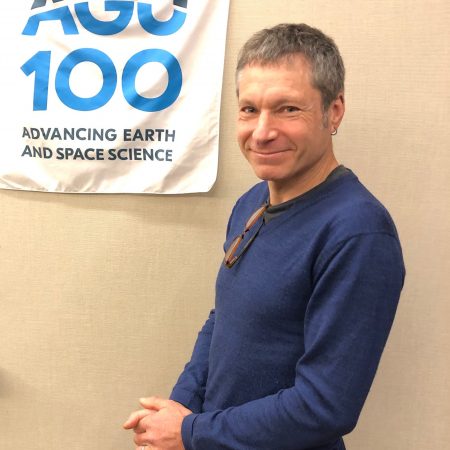

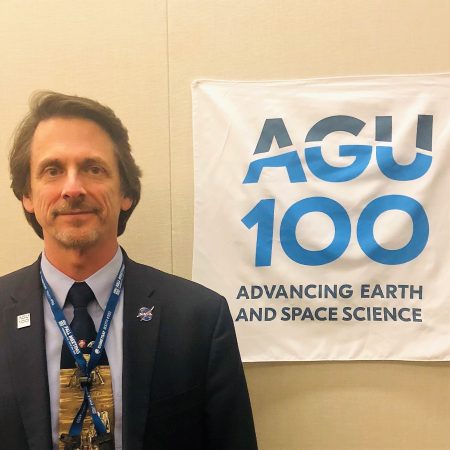

!["As soon as it [snow] lands, it starts to metamorphosize" an interview with Gail Skofronick - Jackson](https://archive.storycorps.org/uploads/2019/01/181210_Jackson-1-450x450.jpg)
